Beirut blast one year on: WFP at hand as people rebuild their lives
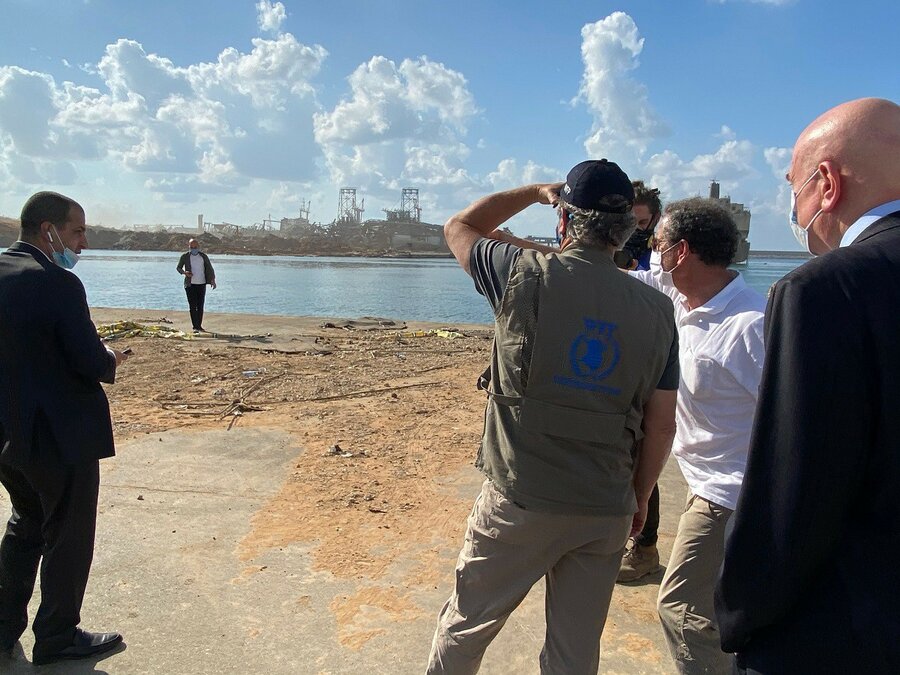
After 40 years, Dalida Haikal’s family-owned shop in Gemmayze neighbourhood finally reopened. Through the help of relatives and friends, Dalida was able to renovate the premises which had been in the family for decades but lay disused, and to supply it with products.
Her dream was shortlived however. Five years after reopening, and as Dalida had almost paid off her debts, Beirut was rocked by a huge explosion that devastated large parts of the city, killing more than 200 people and leaving thousands injured.
Dalida’s shop was among the buildings struck. In a split second, she went from picking parsley for a customer to seeking refuge from the chaos unfolding around her. “We found everything outside,” she says. “All of the goods were scattered on the ground.”
Five years’ worth of hard work and loans were gone to waste.
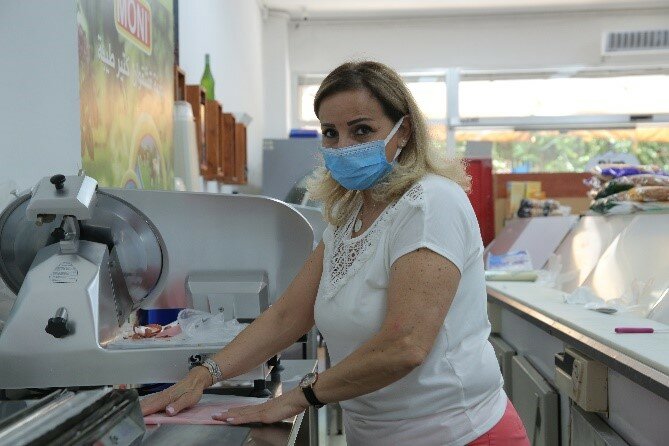
Nevertheless, full of hope and determination, Dalida began renovating the shop the next day, despite her injuries. “Even though I was wrapped in bandages, I was working and felt stronger than before. I wanted to make a comeback,” she explains. Through support from the World Food Programme (WFP), Dalida was able to not only refurbish the shop, but also stock it with items that she could not afford in the past.
As part of WFP Lebanon’s new Food System Grant Facility, which supports small and medium-sized businesses affected by the blast, the UN agency is providing funding to cover wages, repair damage and restock shelves.
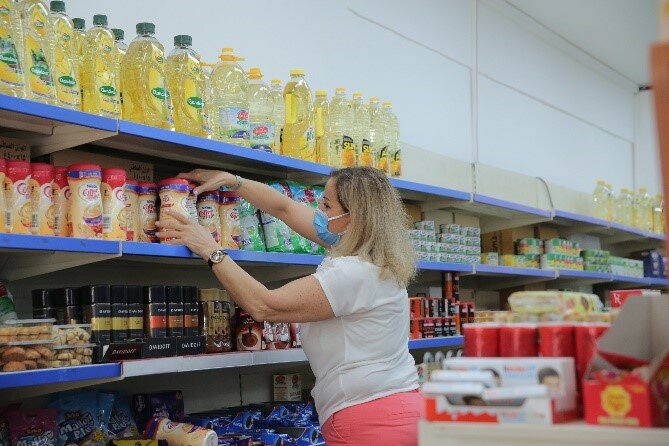
“The assistance from WFP came at just the right time, when it was most needed,” says Dalida. Thanks to contributions from Germany, WFP’s intervention is currently providing assistance for 222 hard-hit businesses which play a key role supporting food security in Lebanon.
One year after the deadly blast that rocked Beirut, and following months of economic meltdown that have plunged millions of people across Lebanon into poverty, WFP now provides assistance to one in six people in the country, a record high for the WFP country operation. With half of Lebanese people and almost the entire Syrian refugee population classified as living in deep poverty, WFP continues to scale up its assistance to reach 1.4 million people in the country with food and cash support.
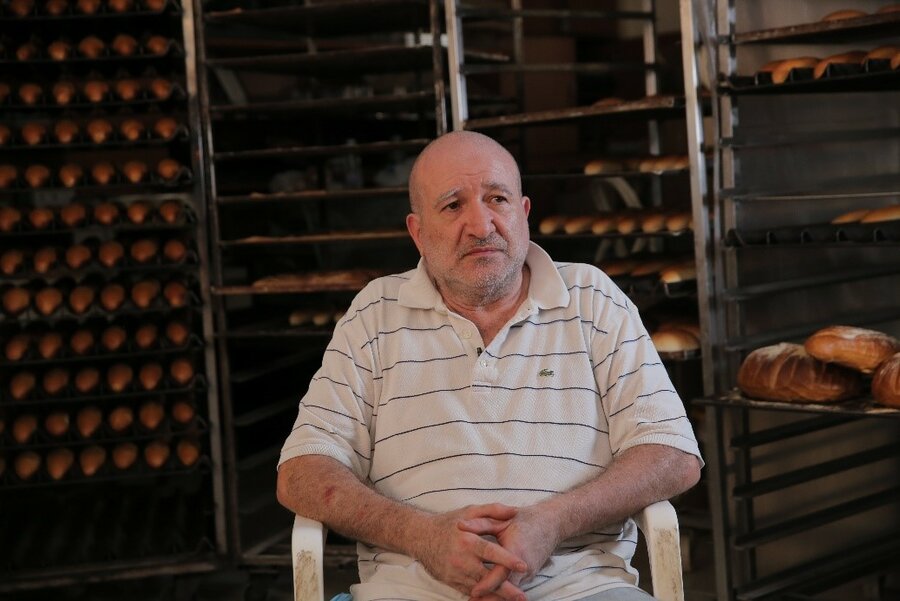
Sarkis Banpajian is another shopowner who received assistance from WFP after the blast wrecked his bakery. He finds it hard to be optimistic for the future though. “We are waiting for a miracle to happen,” he says.
An economic crisis in Lebanon has taken a toll on everyone. People are losing their homes and sources of income, leaving many unable to buy enough food for themselves, let alone their families. The currency has plunged to almost a fifteenth of its former value, driving more than half the population into poverty. “In the end we are all in the same crisis," says Sarkis. "All the merchants I bought my material from used to tell me to take whatever I needed and to pay later – they no longer say that.”
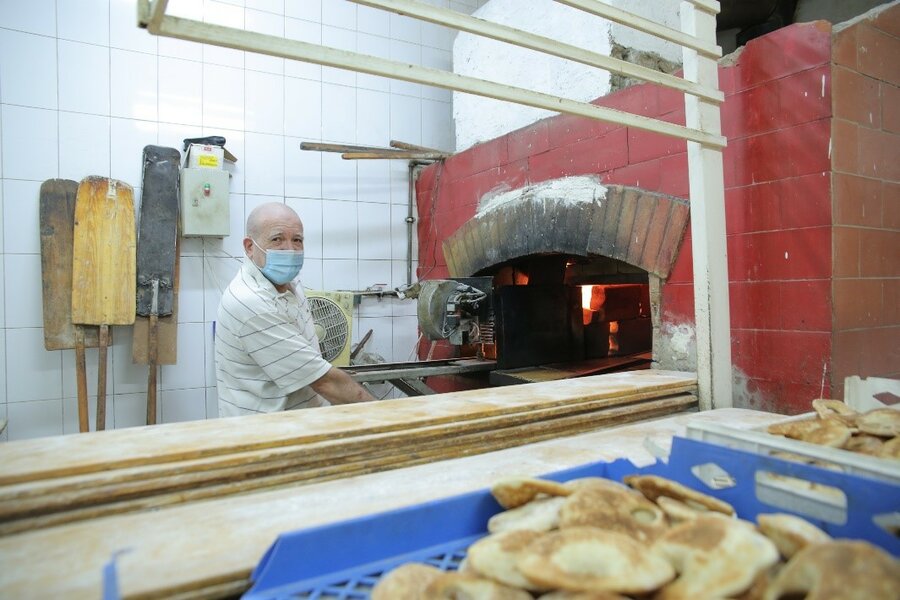
Having survived multiple damage and closures during the civil war of the 1970s and 80s, the blast put Sarkis and his bakery back to square one.
Slowly but surely, through WFP assistance, he was able to repair the shop and get back on his feet to some degree. At only 25 percent efficiency compared to before the explosion, he continues to open the door to his bakery in the hope of one day fully returning to the way things were. For people like Sarkis, this shop is more than a source of income. It is a part of who he is. “There is no reason for us to open, yet we are open. We chose to stay with whatever we have. This is my business. My soul is in it. I was born for this work."
